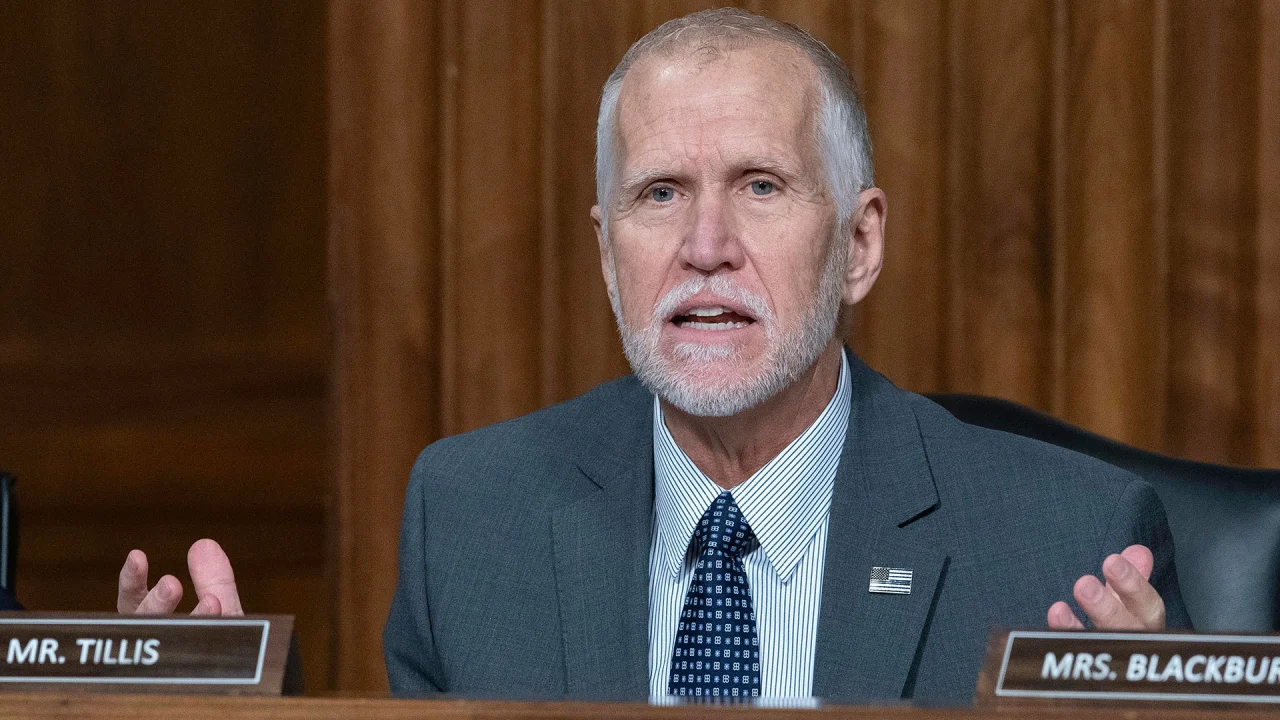Essential Guide on How to Start a Credit Repair Business for Success

Key Takeaways

- Growing Market Demand: There is a rising need for credit repair services as more individuals become aware of their credit scores and seek professional assistance.
- Legal Compliance: Understanding the legal structures, licensing requirements, and regulations is essential for establishing a credit repair business and ensuring compliance.
- Target Market Identification: Knowing your audience through demographic analysis and understanding their needs allows for tailored services and effective marketing strategies.
- Comprehensive Business Planning: Creating a solid business plan is crucial, covering everything from industry analysis to defining your business model and identifying market opportunities.
- Effective Marketing Strategies: Implementing digital marketing tactics such as SEO, content creation, and social media engagement is vital for building a strong online presence and attracting clients.
- Streamlined Operational Procedures: Developing efficient client onboarding and utilizing specialized software can enhance service delivery and foster positive client relationships.
Starting a credit repair business can be a rewarding venture, both personally and financially. With millions of people struggling to improve their credit scores, your expertise can make a significant difference in their lives. By helping clients navigate the complexities of credit reporting, you’ll not only empower them but also tap into a growing market.
In today’s economy, the demand for credit repair services is on the rise. Whether you’re looking for a side hustle or a full-time career, understanding the ins and outs of this industry is crucial. From legal requirements to effective marketing strategies, you’ll need a solid plan to establish your business and attract clients. Let’s dive into the essential steps to get your credit repair business off the ground and thriving.
Understanding Credit Repair

Understanding credit repair involves knowing how to assist individuals in improving their credit scores. Credit repair focuses on identifying and disputing inaccuracies in credit reports, providing guidance on managing debt, and building credit.
What Is Credit Repair?
Credit repair is the process of reviewing credit reports for errors, inaccuracies, and outdated information. Effective strategies include disputing negative items with credit bureaus and creditors. In addition, credit repair involves educating clients about credit management, payment habits, and financial literacy. By implementing these methods, you help your clients achieve better credit scores, which can enhance their financial opportunities.
Why Start a Credit Repair Business?
Starting a credit repair business offers significant potential for entrepreneurs. You can tap into a growing market as individuals become increasingly aware of their credit scores and seek professional help. A solid business model focuses on providing value through expertise and effective solutions.
Operating within this industry requires a thorough understanding of legal structures such as LLCs or sole proprietorships. Navigating permits and licenses is critical for compliance with federal and state regulations. Building a strong brand, developing a digital marketing strategy, and utilizing social media can position your business effectively in a competitive landscape.
Networking and mentoring can increase your credibility and expand your customer acquisition strategies. Understanding your target audience allows you to tailor your services and marketing efforts, ultimately enhancing customer service and satisfaction. Starting a credit repair business can lead to a profitable venture while making a positive impact on clients’ financial futures.
Legal Considerations

Starting a credit repair business involves navigating several legal aspects to ensure compliance and facilitate growth. Understanding these legal considerations helps maintain a solid foundation for your startup.
Business Structure
Choosing the right legal structure for your credit repair business is essential. Options include sole proprietorship, partnership, limited liability company (LLC), or corporation. An LLC is often recommended due to its liability protection and manageable operational requirements. Each structure impacts taxes, liability, and business operations, so you must select one that aligns with your business goals.
Licensing Requirements
You must comply with your state’s licensing requirements to legally operate a credit repair business. Some states require specific licenses or permits to provide credit repair services. Conduct thorough market research to identify necessary licenses for your location and ensure you complete all registration processes. This step not only legitimizes your business model but also enhances your credibility among clients.
Compliance with Regulations
Adhering to federal and state regulations is vital for your credit repair startup. The Credit Repair Organizations Act (CROA) outlines specific guidelines to protect consumers. Your business must avoid false advertising and ensure transparent communication about services and fees. Understanding these regulations mitigates risks and fosters trust with your target audience. Consider seeking legal advice to navigate these complexities and align your practices with industry standards.
Business Planning

Business planning is essential for your credit repair venture. A well-structured approach helps ensure long-term success and guides you through initial stages. Focus on creating a robust business plan, identifying your target market, and adhering to legal requirements.
Creating a Business Plan
Creating a comprehensive business plan solidifies your strategy for operating a credit repair business. Include the following components:
- Industry Overview: Analyze the credit repair industry, covering how credit scores are calculated and the dispute process. Familiarity with common credit issues clients face will enhance your service offerings.
- Business Model: Clearly define the credit repair services you’ll provide. Your options may range from credit bureau disputes and legal services to full-service credit repair or even DIY credit repair solutions.
- Market Analysis: Conduct thorough market research to identify industry size, trends, and competitors. Understand your potential target market’s size and growth forecasts, which will inform your marketing efforts and overall business strategies.
Identifying Your Target Market
Identifying your target market is vital to the success of your credit repair business. Focus on the following aspects:
- Demographics: Assess the age, income levels, and financial behaviors of your potential clients. For instance, younger individuals may seek credit repair for first-time home purchases or car loans, while older adults might focus on improving credit for refinancing.
- Needs and Pain Points: Understand the specific challenges your target audience faces, such as lack of credit knowledge or previous financial mistakes. Tailor your services and marketing messages to address these issues effectively.
- Market Segmentation: Segment your target audience into groups like individuals facing bankruptcy, those with high credit utilization, or clients lacking credit history. This segmentation lets you develop targeted marketing campaigns that resonate.
- Customer Acquisition: Implement strategies to attract your target audience. Utilize digital marketing techniques like SEO, content marketing, and social media outreach to build brand awareness and foster trust within the community.
By focusing on these areas within your business planning, you set a solid foundation for your credit repair enterprise.
Setting Up Your Business

Setting up your credit repair business involves several crucial tasks, including legal compliance and branding. Follow these steps to ensure a solid foundation for your venture.
Choosing a Business Structure
Select a legal structure that aligns with your goals and preferences. Consider these common options:
- Sole Proprietorship: This simple structure allows you to maintain complete control but exposes you to personal liability.
- Partnership: This involves two or more individuals sharing management and profits; however, partners also share liability.
- LLC (Limited Liability Company): This structure offers liability protection while allowing flexibility in management and taxation, often seen as the best choice for credit repair businesses.
- Corporation: This more complex structure provides liability protection, but it entails rigorous regulations and tax requirements.
Choose the right structure based on your business plan, expected revenue, and risk tolerance. Many entrepreneurs opt for an LLC due to its blend of flexibility and protection.
Establishing a Brand Identity
Craft a brand identity that resonates with your target audience. Prioritize these steps in your branding strategy:
- Create a Unique Logo: Your logo should capture your service offerings and business values clearly and attractively.
- Develop a Compelling Value Proposition: Articulate what sets your credit repair services apart from competitors.
- Build an Online Presence: Design a professional website, utilize social media channels, and implement SEO strategies to enhance visibility. Consider using digital marketing tools, such as content marketing and email marketing, to engage potential clients.
- Engage in Networking: Connect with other professionals in the industry, join business groups, and seek mentorship. Their guidance can provide valuable insights and enhance your credibility.
By focusing on these elements, you can establish a strong brand identity that attracts clients and supports your growth strategy.
Marketing Strategies
Effective marketing strategies play a crucial role in establishing and growing your credit repair business. Focus on two key areas: online marketing tactics and networking.
Online Marketing Tactics
Online marketing tactics significantly enhance your visibility and reach. Prioritize SEO to improve your website’s ranking on search engines. Create valuable content that addresses common credit repair questions, which helps attract organic traffic. Utilize social media to engage with your target audience, share success stories, and promote your services. Invest in email marketing to nurture leads; send informative newsletters that provide tips for improving credit scores. Consider PPC advertising for immediate exposure, targeting potential clients searching for credit repair solutions. These strategies, combined, create a robust online presence that drives customer acquisition and supports your overall growth strategy.
Networking and Building Partnerships
Networking and building partnerships expand your reach and credibility in the credit repair industry. Attend industry events, seminars, and local business meetups to connect with potential clients and referral sources. Collaborate with real estate agents, mortgage brokers, and financial advisors who can refer clients needing credit repair. Establish relationships with local businesses that align with your services; offer mutual referrals. Consider joining business incubators or mentorship programs to gain insights and support from experienced entrepreneurs. Your network becomes a valuable asset, enhancing your brand and driving sales through strategic collaborations.
Operational Procedures
Operational procedures form the backbone of a successful credit repair business. They ensure compliance with legal regulations and help streamline client interactions and service delivery.
Client Onboarding Process
Create an effective client onboarding process to establish trust and set expectations. Start with detailed explanations about your services, including how you’ll assist clients in improving their credit scores. Provide clear contracts outlining services, fees, and cancellation terms. Incorporate a welcome packet that includes educational materials on credit repair, essential for fostering a positive client relationship. Use digital tools to collect necessary documentation, such as identification and credit reports, ensuring a seamless and efficient process.
Tools and Software for Credit Repair
Invest in specialized tools and software to streamline your operations. Utilize credit repair software like Credit Repair Cloud or DisputeBee for managing disputes and tracking progress. These platforms often offer features such as automated dispute generation and client management, which enhance efficiency. Implement accounting software like QuickBooks to manage finances, track expenses, and facilitate tax compliance. Ensure your business website is optimized for SEO, making it easier for potential clients to find your services online. Engaging in digital marketing, including social media and email marketing campaigns, can further enhance your customer acquisition strategies and promote your brand effectively.
Conclusion
Starting a credit repair business can be a fulfilling and profitable venture. With the right knowledge and strategies you can make a significant impact on your clients’ financial futures. Prioritizing legal compliance and operational integrity will not only build trust but also set you apart in a competitive market.
As you embark on this journey remember to leverage effective marketing techniques and network with industry professionals. By staying informed and adaptable you’ll position your business for long-term success. Your commitment to helping others improve their credit scores can lead to both personal satisfaction and financial rewards. Embrace the challenge and watch your credit repair business thrive.
Frequently Asked Questions
What is a credit repair business?
A credit repair business helps individuals improve their credit scores by identifying inaccuracies in credit reports, disputing negative items, and educating clients on financial management. It caters to the growing demand for better credit health among consumers.
How do I start a credit repair business?
To start a credit repair business, begin by researching the industry, understanding legal requirements, and selecting a suitable business structure, such as an LLC. Create a detailed business plan and develop a strong online presence to attract clients.
What are the legal requirements for a credit repair business?
Legal requirements include compliance with the Credit Repair Organizations Act (CROA) and state-specific licensing. It’s essential to choose the right business structure and ensure transparency in client interactions to build trust.
How can I market my credit repair business?
Effective marketing strategies include improving your website’s SEO, creating valuable content, leveraging social media, and using email marketing. Networking with industry professionals and attending events can also enhance your visibility and credibility.
What are the benefits of starting a credit repair business?
Starting a credit repair business can be financially rewarding and fulfilling, as it helps individuals regain control over their financial futures. With increasing awareness of credit scores, the demand for these services continues to rise.
How do I ensure operational efficiency in my credit repair business?
To ensure efficiency, invest in specialized tools and software for credit repair and accounting. Develop a strong client onboarding process that includes clear contracts, service explanations, and educational materials for clients.
Image Via Envato
This article, "Essential Guide on How to Start a Credit Repair Business for Success" was first published on Small Business Trends
What's Your Reaction?
 Like
0
Like
0
 Dislike
0
Dislike
0
 Love
0
Love
0
 Funny
0
Funny
0
 Angry
0
Angry
0
 Sad
0
Sad
0
 Wow
0
Wow
0





























































































